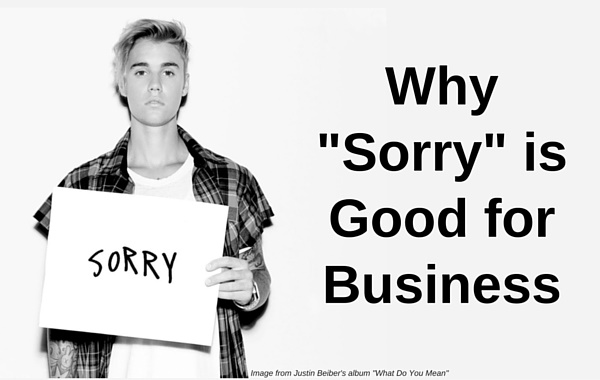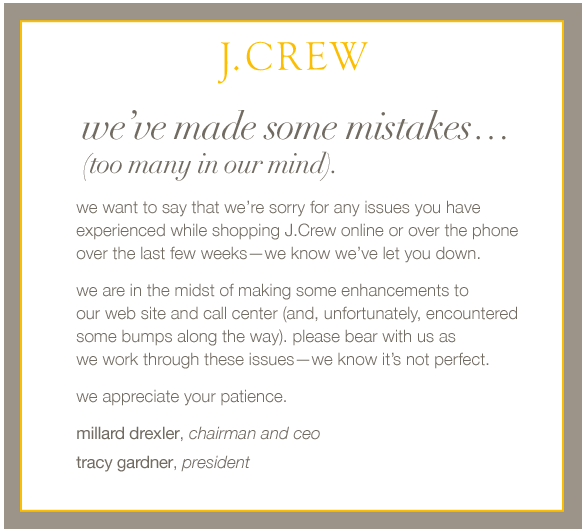
Image courtesy of Billboard
“Sorry” might have been one of the hottest hits by Justin Beiber ever (with over 3.15 billion YouTube views to date). However, it is still incredibly hard for companies to say.
And that has led to so many countless cases of organisational grief over the years.
As a PR professional and former spokesperson, I monitor a lot of what’s being written in the Forum pages of newspapers and the responses by organisations to public complaints and grouses. I also take note of how managers and business leaders respond to complaints and negative feedback concerning their organisations.
If you haven’t tried it yourself, you really should. You can learn a lot about a company by how it positions its reply and the tone of voice in which this is done.
Many companies in Singapore prefer to protect their organisational interests rather than that of their consumers or clients.
More often than not, their replies are polite but defensive and superficial. In fact, you can easily replace the company name or brand, and you can’t tell the difference.
This is a sad state of affairs.
First, they spend huge sums of money to advertise, market and promote themselves as the coolest, hippest and greatest. They conduct focus group after focus group to determine what customers want. They engage top notch market research firms to obtain razor sharp (well at least that’s what they think) analytics on their prospective customers. They create brand-rich aesthetically pleasing environments that awe you the moment you step into their shop fronts.
What happens when they screw up?
More often than not, customers have to maneuver through an obstacle course to seek redress. And this is often done grudgingly by the lowest ranking staff in the pecking order.
Thankfully, there are shiny exemplars in the art of apology.
Consider this fine example by J.Crew which is highlighted by Church of the Customer’s Jackie Huba.
The company’s e-commerce website faced problems and they decided to quickly face up to it. What’s especially heartwarming is the note below which came not from the customer service manager or PR director but the CEO and President themselves.
Other than the email above, customers who experienced difficulties were given some form of compensation. Naturally, this was tailored according to the levels of severity.
I think this does infinitely more for a company’s brand than endless ads and numerous in-your-face posters spouting superficial superlatives!
As highlighted by one of the commenters on Jackie’s post, the best example of corporate apologies must come from Johnson and Johnson with the Tylenol Poisoning Case.
After seven people died from ingesting cyanide-laden Tylenol in 1982, the company issued a nationwide recall of Tylenol products which cost it an estimated retail value of over US$100 million. It even took up ads to tell everybody not to consume any products that contained Tylenol.
Not only did Tylenol (and J&J) not keel over, but both the brand and the company grew stronger than ever with Tylenol becoming the most popular over-the-counter analgesic in US!
Now tell me friends, is it really that difficult to eat humble pie, say sorry and mean it through your actions?
Update: Contrast the examples above with what Faerie Imp experienced here with a courier service from hell. I can totally empathise with her!


for some strange reason, in many pr training courses, we’re all taught to use ‘sorry’ in a sincere way. but when we get out there to the corporate world, we are encouraged not to use the word sorry unless it’s deathly necessary. and if we have to use it, we have to clear through to the CEO.
the quality of service in singapore is still seriously lacking. and i’m not talking about service staff per se. i’m talking about agencies, stat boards, organizations who don’t have this customer-oriented mentality.
Saying sorry is easy. For example … “This should never have happened. I am sorry that it did.”